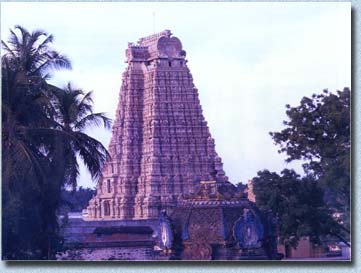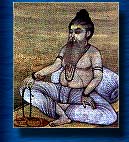About the
College | Schools & Admissions | Contact
Us
Home |
Resources | Donors | Volunteers | Search
Philosophy of Jyotish
Page 3

In traditional Vedic culture the aspiring astrologer would have to study many subjects which would all enhance his ability to predict. Even a 100-150 years ago the student would first have to master Sanskrit. With knowledge of Sanskrit, he could then study mathematics (ganita). Having mastered mathematics, the student could progress to astronomy. (It must be remembered that in those days they did not have calculators and computers; they had to be able to calculate the planetary positions from scratch.) These scientific disciplines had to be mastered before they could study astrology.
Along with the scientific disciplines of Sanskrit (a mathematically precise language), mathematics, and astronomy; the student also had to study and immerse himself in Vedic culture and world view. This meant a rigorous study of Vedic literature such as Srimad Bhagavatam, Vedanta Sutra, Mahabharata, Ramayana, and the Upanishads, etc.; as well as the practice of mantra meditation, Arcana (worship the Deity) and Yoga with great devotion and sincerity. Mantras are powerful sound formulas that help us to understand God; it should be noted that not all mantras are the same -- some are for material things some for spiritual. Krsna was the object of meditation. And, Yoga literally means the reconnecting of the infinitesimal soul with the Supreme Soul in the relationship of servant and Master. In other words, the Brahmacari (Vedic student) sincerely engaged in the Vedic process of communing with Krsna the Supreme Personality of Godhead. The Brahmacari, aside from soaking himself in Vedic mysticism also led a particular lifestyle which aided in the acquisition of spiritual knowledge (the mature fruit of mysticism is spiritual knowledge): chastity, pure vegetarian diet, no intoxication of any sort, peacefulness, self-control, austerity, purity, tolerance, simplicity, truthfulness, compassion, ahimsa (nonviolence), respect for parents and elders, respect for guru and saints, etc.
These two parallel lines of training namely scientific and spiritual produced greatly powerful and accurate astrologers. The scientific training screened out the less intelligent students leaving only the most intelligent to continue studying. The mystic training inculcated humility, which is the essence of wisdom, and sharpened intuition. Thus, only the top 5 or 10 percentile of the intelligentsia studied astrology. The mathematical rigor gave very sharp reasoning capacity which greatly helped in analyzing horoscopes. But while analyzing horoscopes requires great intelligence, great intelligence is not enough. As any student of astrology will tell you, Vedic astrology is extremely complex even for the most intelligent student. Divine aid is necessary in understanding the horoscope. Since astrology is the science of Time; and the Time Factor is a manifestation of the Supreme Personality of Godhead; it is recognized in Vedic culture that for an astrologer to be successful he must worship God. For it is only by inspiration from Lord Krsna, in the heart of the astrologer, that the astrologer can make a correct prediction. As Lord Krsna says in Bhagavad-gita 15.15:
"I am seated within everyone's heart, and from Me come remembrance, knowledge, and forgetfulness. By all the Vedas, I am to be known. Indeed, I am the compiler of Vedanta, and I and the knower of the Vedas"
And in Bhagavad-gita 10.10 Lord Krsna states:
"To those who are constantly devoted to serving Me with love, I give the understanding by which they can come to Me."
